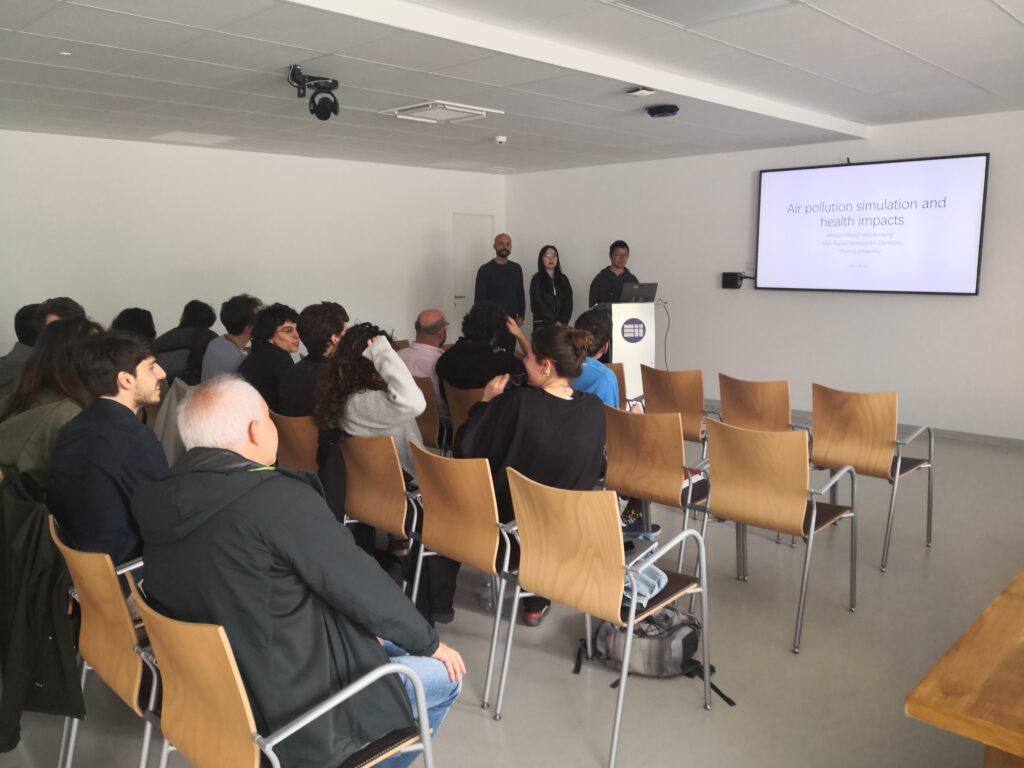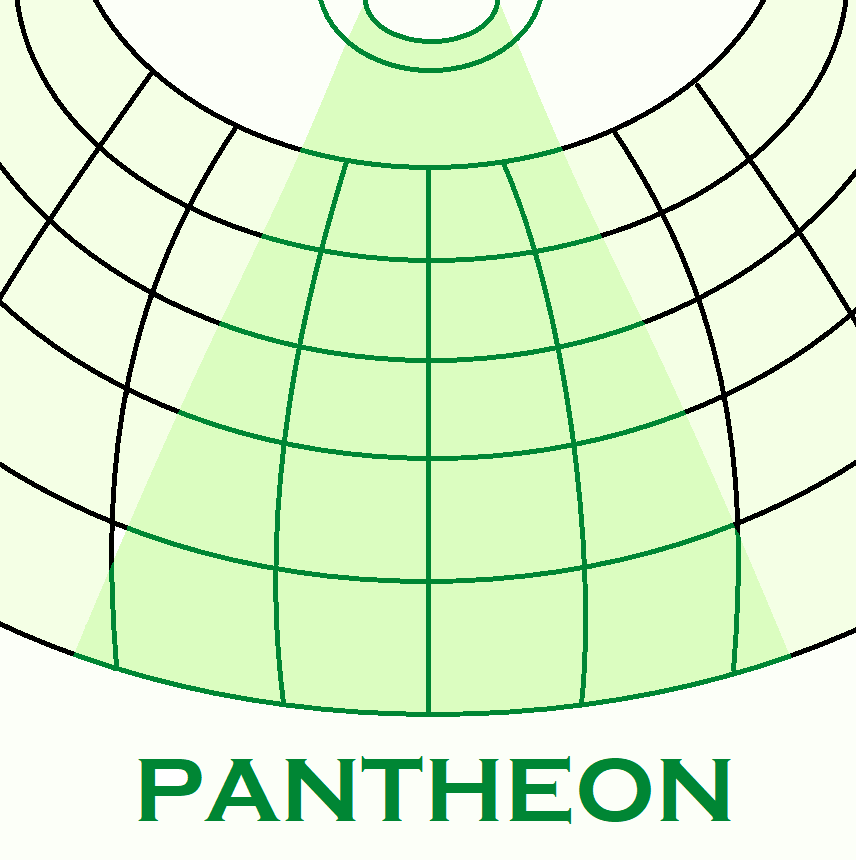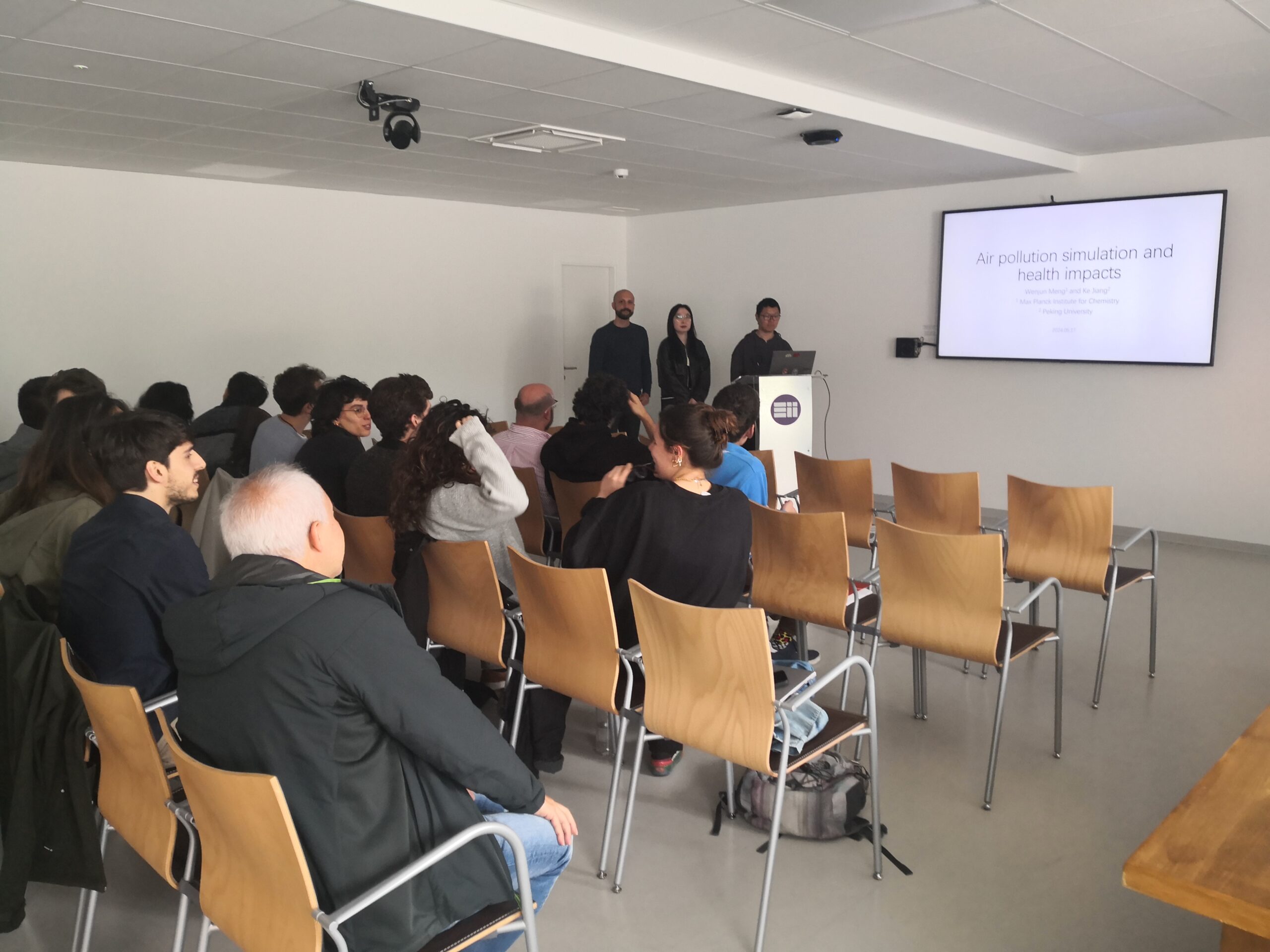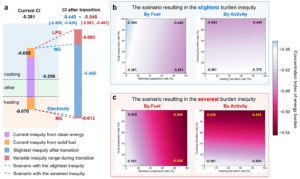The PANTHEON’s team at the University of Valladolid, led by Dr Jaime Nieto and Sara Pavesio recently hosted two visitors, Dr. Wenjun Meng from the Max Planck Institute for Chemistry and Ke Jiang from Peking University, for a three-month collaboration from April 2024 to June 2024. This collaboration with the WILIAM model development group aimed at building a framework for integrating a new submodule into the WILIAM model that quantifies the environmental and health impacts, and at enhancing cooperation across different work packages. WILIAM is a model developed using system dynamics, designed based on the MEDEAS models to address limitations in the field of IAMs. System dynamics allows for capturing complex feedback loops and nonlinear relationships between social, economic, and environmental variables. WILIAM is composed of 8 modules: demography, society, economy, finance, energy, materials, land and water, and climate.

Source: https://github.com/LOCOMOTION-h2020/WILIAM_model_VENSIM/tree/main
The primary objective of this collaborative effort is to create a comprehensive tool that links energy, environment, health, and economics together. By doing so, the model will be able to evaluate the integrated impacts of future mitigation strategies and serve better for the PANTHEON project. This innovative approach is expected to provide valuable insights into the multifaceted consequences of policy decisions and to help guide more effective and sustainable solutions.
During their stay, the researchers worked closely with the WILIAM team to develop and implement the new submodule. As the PANTHEON project progresses, there will be more available data from both EU and Chinese partners feeding into the model, supporting the calibration and validation of this submodule’s results and enhancing its capabilities. The integration of this submodule marks a significant advancement in the WILIAM model’s capability to simulate complex systems and their interactions.

Modification of the pollution submodule
Key Highlights:
- Collaborative Effort: The exchange facilitated knowledge sharing and collaboration between leading institutions.
- Comprehensive Framework: Development of a new submodule that integrates energy, environment, health, and economic impacts.
- Sustainable Solutions: Enhanced ability to assess the integrated impacts of future mitigation strategies and contribution to more effective and sustainable policy decisions.
This collaboration underscores the importance of international cooperation in advancing scientific research and addressing global challenges. The new submodule will not only enhance the WILIAM model, serving as a reliable simulation tool for the PANTHEON project, but also provide a valuable resource for researchers and policymakers worldwide.







